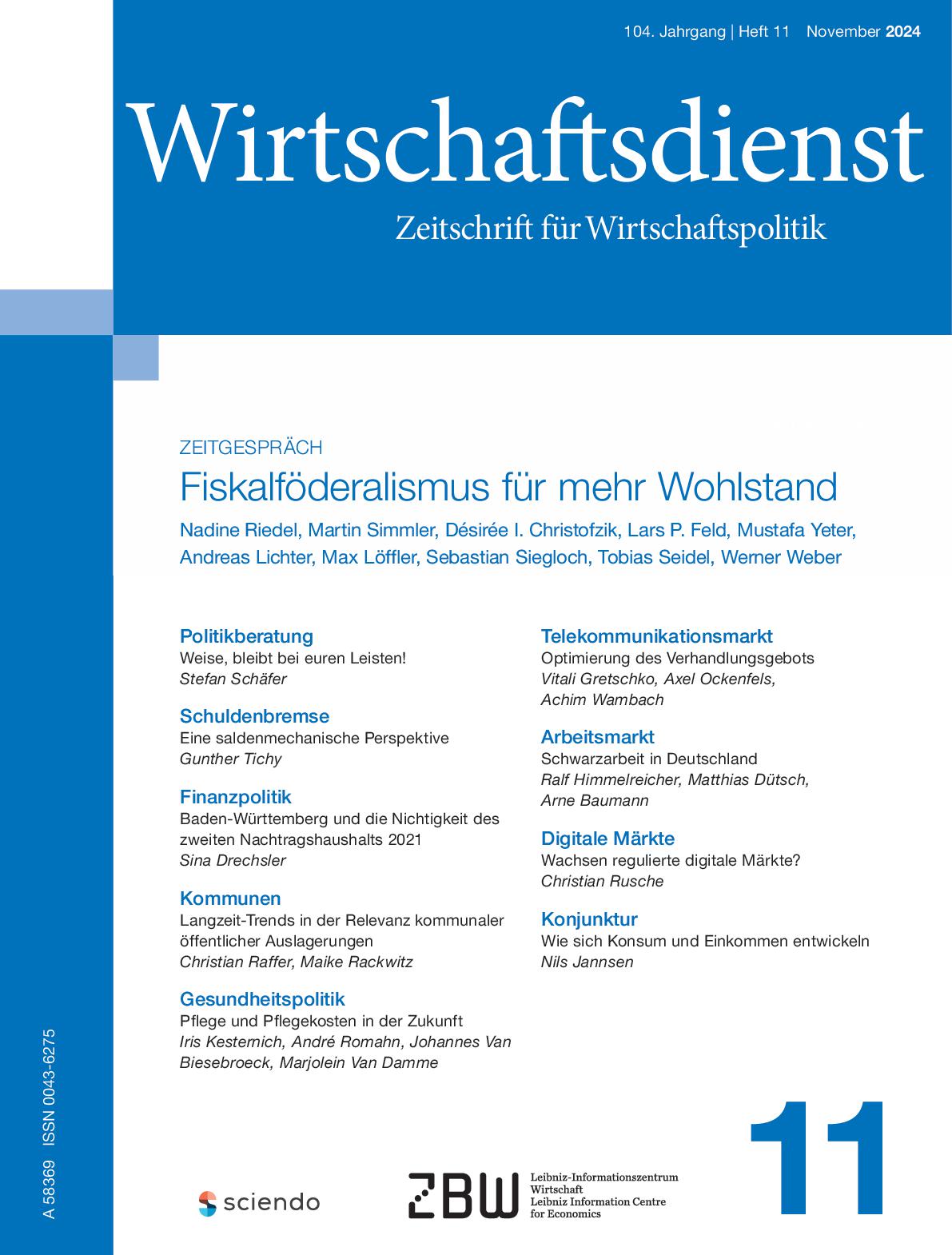The article examines the German fiscal federal system and puts forward reform options. On the expenditure side of the public budget, frictions mainly arise where administrative and legislative competences are separated across government layers – we call for reforms, which remove this separation. In the financial equalisation system (“Finanzausgleich”), we suggest focusing on expenditures that are central to ensuring equality of living conditions within Germany. Moreover, we propose abolishing the tagging of per-capita fiscal needs to population size (which is not backed by empirical evidence) and accounting for the significant price differences across jurisdictions. On top of that, the article advocates for greater tax autonomy for the federal states, potentially in the form of a surcharge on the income tax. This would allow states to adjust the level of public good and service provision such that it reflects regional preferences and would give more budget flexibility. The real estate transfer tax (“Grunderwerbsteuer”) is identified as problematic and should be discarded. At the local level, we show that the trade tax (“Gewerbesteuer”) is accompanied by considerable economic distortions, calling for its abolishment. The property tax (“Grundsteuer”), in turn, is well-suited as an autonomous local tax instrument, and the update of the outdated tax base offers an opportunity to further enhance its role and importance in the local context.
Link to the article: https://www.wirtschaftsdienst.eu/inhalt/jahr/2024/heft/11/beitrag/fiskalfoederalismus-in-deutschland-was-zu-tun-ist.html
Contact: Dr. Martin Simmler

![[Translate to English:] [Translate to English:]](/media/_processed_/6/1/csm_AdobeStock_543466681_9df3d40718.jpeg)
![[Translate to English:] [Translate to English:]](/media/_processed_/6/1/csm_AdobeStock_543466681_6eab1c26f9.jpeg)




